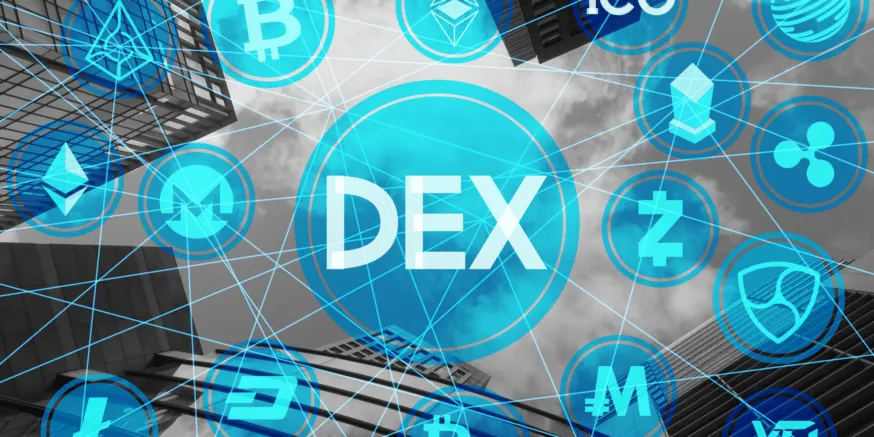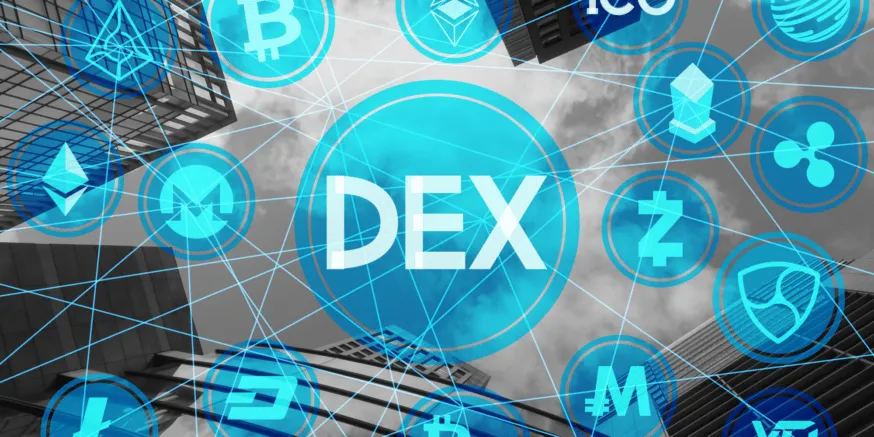Everyone is talking about moving to a DEX or Decentralised Exchange. So what is DEX?
A decentralized exchange (DEX) is a peer-to-peer (p2p) online service that allows direct cryptocurrency transactions between two interested parties. – Cointelegraph

Cryptocurrencies were first started to be money that individuals owned that had value based on its use alone. It was not dependent on economies, governments or any other institution. Specifically, it did not have a central bank or authority that controlled the currency.
When Bitcoin took off, cryptocurrencies became mainstream. However, not every mined crypto. To participate in the crypto revolution, they exchanged fiat money (Dollars, Pounds, Euros) for bitcoin. This led to a booming exchange business for cryptocurrencies. Among the main ones were Binance, Upbit, Coinbase, etc. They performed a simple function. They traded fiat-to-crypto and crypto-to-crypto. This system worked well until recent hacking episodes where crypto were siphoned off, never to be seen again. The FATF and other regulatory bodies also started curbing or outright banning cryptocurrencies. The problems with exchanges lay in the fact that these entities were built in a centralised manner. They could be targeted by hackers and governments as a result.
Decentralized cryptocurrency exchanges are designed to solve this problem. While crypto was decentralized, the exchanges were not. Decentralized exchanges applies the same logic of cryptocurrency to exchanges. In this system, there is no central authority. Everything is stored in the block chain and is completely P2P or peer-to-peer.
Pro’s
- Security
Security has always been the main criterion of crypto. The blockchain is secure by design, and crypto as a result. The recent slew of hacks have not tampered with the crypto in any way. They merely got into wallets on the exchanges and emptied them. This could have been a technical breach or a human one. The end result was that the best way to secure your wallet is to put it also on the blockchain. That will ensure that your wallet and all its contents will remain safe.
Transactions are not initiated until the last phase, and it is directly transferred from wallet to wallet. No one can step in between and steal your crypto during this process.
- Control and ownership
Crypto has always been about control and ownership of money. Any value generated was yours and yours alone. Crypto made sure that this was built into the very concept of crypto. Your wallet is stored on the blockchain shared between a large number of people, making it near unhackable. The peer to peer design ensures that every one has control over their own money and wallet.
- No Third Party
Since the transactional information is stored on the blockchain, which means every Peers’ computer, there is no need for a third party to vet transactions. This is how it takes a completely decentralised approach to exchanges
Con’s
- No Fiat exchange
The biggest problem with DEX is that it cannot work with fiat currencies. Exchanges only happen crypto-to-crypto. This is fine if you’re already in the system. However, new people will have to purchase crypto on a centralized exchange and transfer them to a DEX platform. Apart from being tedious, this shouldn’t be a problem.
With greater control and regulation imposed by governments on crypto, people are looking for an alternative. DEX platforms gives the power back to the user and allows exchange and transactions of crypto without any interference from authorities or companies. It makes cryptocurrencies truly decentralized!



